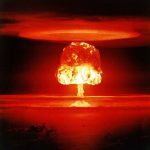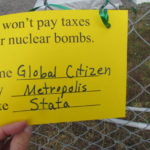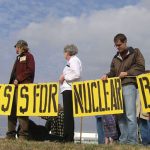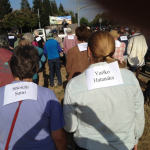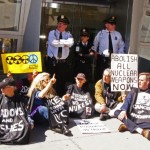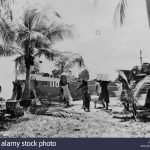
History of the Nuclear Testing in the Marshall Islands After World War II the United States seized the Marshall Islands, a 1,800 mile chain of islands in the Pacific Ocean. Prior to that the Japanese had occupied the territory as an outpost for their military interventions. One Sunday in February 1946, the island’s US military… Continue reading
